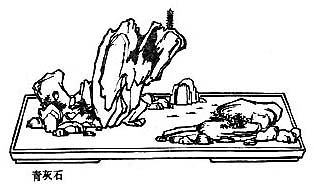詩
經
Shi Jing 
 – The Book of Odes
– The Book of Odes
The oldest collection of Chinese poetry, more than three hundred songs, odes and hymns. Tr. Legge (en) and Granet (fr, incomplete).
Shijing II. 7. (218)
| Áö µL ¦® °s ¦¡ ¶¼ ±f ´X |
¦¡ ¿P ¥B ÅA ¦n º¸ µL ®g |
¨° ©¼ ºÓ ¤k ¥O ¼w ¨Ó ±Ð |
¨Ì ©¼ ¥ ªL ¦³ ¶° ºû øj |
Áö µL ¦n ¤Í ¦¡ ¿P ¥B ³ß |
ê °§ ê ´÷ ¼w µ ¨Ó ¬A |
«ä öÜ ©u ¤k ³u ¤¼ |
¶¡ Ãö ¨® ¤§ ߣ ¤¼ |
¨® ߣ |
||
| îz º¸ ·s ©ü ¥H ¼¢ §Ú ¤ß |
¥| ¨d ñ´ ñ´ ¤» ů ¦p µ^ |
°ª ¤s ¥õ ¤î ´º ¦æ ¦æ ¤î |
ÂA §Ú îz º¸ §Ú ¤ß ¼g ¤¼ |
ªR ¨ä ¬g Á~ ¨ä ¸ Ùú ¤¼ |
ÔF ©¼ °ª ©£ ªR ¨ä ¬g Á~ |
Áö µL ¼w »P ¤k ¦¡ ºq ¥B »R |
Áö µL ¹Å Ùâ ¦¡ ¹ ±f ´X |
¨® ߣ |
||
Jian-guan went the axle ends of my carriage,
As I thought of the young beauty, and went [to fetch her].
It was not that I was hungry or thirsty,
But [I longed] for one of such virtuous fame to come and be with me.
Although no good friends be with us,
We will feast and be glad.
Dense is that forest in the plain,
And there sit the long-tailed pheasants.
In her proper season that well-grown lady,
With her admirable virtue, is come to instruct me.
We will feast, and I will praise her.
' I love you, and will never be weary of you. '
Although I have no good spirits,
We will drink [what I have], and perhaps [be satisfied].
Although I have no good viands,
We will eat [what I have], and perhaps [be satisfied].
Although I have no virtue to impart to you,
We will sing and dance.
I ascend that lofty ridge,
And split the branches of the oaks for firewood.
I split the branches of the oaks for firewood,
Amid the luxuriance of their leaves.
I see you whose match is seldom to be seen,
And my whole heart is satisfied.
The high hill is looked up to ;
The great road is easy to be travelled on.
My four steeds advanced without stopping ;
The six reins [made music] in my hands like lute-[strings].
I see you my bride,
To the comfort of my heart.
Legge 218
A grands coups j'ai fixé les essieux de mon char :
je vais chercher la belle jeune fille de mes rêves !
Qu'importe la faim ! Qu'importe la soif !
Avec son prestige elle s'en vient vers moi !
Bien que je n'aie pas de bons amis,
Or ça ! banquetons et faisons fête !
Dans cette épaisse forêt de la plaine,
Voilà que les faisans se réunissent !
A l'époque voulue, cette noble fille
Avec sa grande Vertu vient m'aider !
Or ça ! banquetons, chantons ses louanges !
Je t'aimerai sans me lasser !
Bien que je n'aie pas de liqueurs exquises,
Or ça ! buvons, je t'y invite !
Bien que je n'aie pas de mets délectables,
Or ça ! mangeons, je t'y invite !
Bien qu'en Vertu je ne te vaille pas,
Or ça ! chantons et puis dansons !
Je suis monté sur la haute colline
Et j'y ai coupé des fagots de chêne !
Et j'y ai coupé des fagots de chêne !
Comme le feuillage en est verdoyant !
Quel bonheur pour moi ! Je m'unis à toi !
Ah ! comme mon cœur en est soulagé !
On peut admirer les hautes montagnes !
On peut cheminer sur les grands chemins !
Mes quatre chevaux, oh ! qu'ils sont dociles !
A voir leurs six rênes on dirait un luth !
Je m'unis à toi, nouvelle épousée,
Et je mets ainsi la paix dans mon cœur !
Granet LX.

The Book of Odes – Shi Jing II. 7. (218) – Chinese on/off – Français/English
Alias Shijing, Shi Jing, Book of Odes, Book of Songs, Classic of Odes, Classic of
Poetry, Livre des Odes, Canon des Poèmes.
The Book of Odes, The Analects, Great Learning, Doctrine of the Mean, Three-characters book, The Book of Changes, The Way and its Power, 300 Tang Poems, The Art of War, Thirty-Six Strategies
Welcome, help, notes, introduction, table.
Index – Contact – Top
